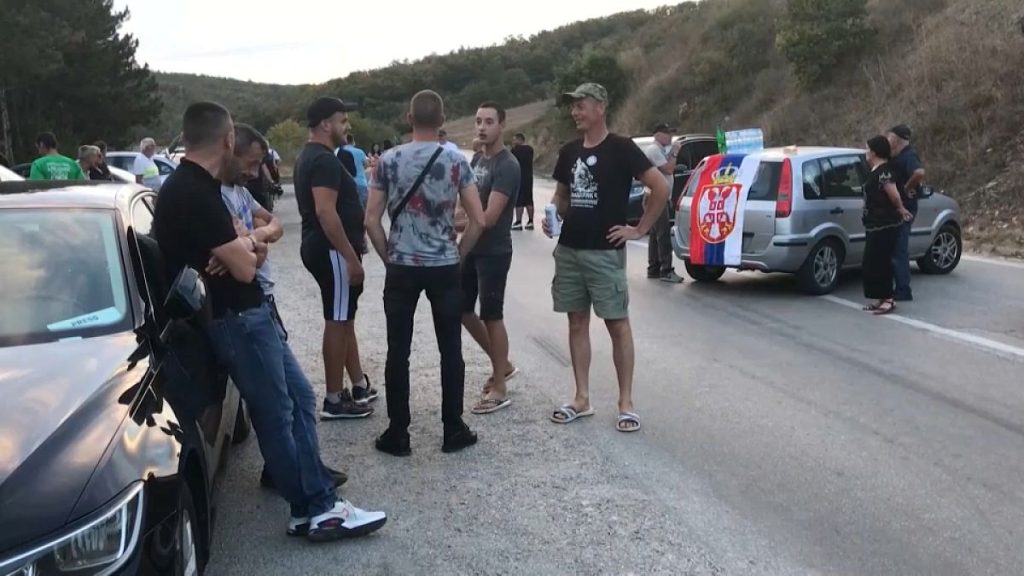Tensions in northern Kosovo, an area with a predominantly ethnic Serb population, have escalated as authorities closed two of the four border crossings with Serbia after protesters on the Serbian side blocked the road and prevented motorists with Kosovo documents from passing through. The closures, at the Brnjak and Merdare crossings, were in response to activists from Serbia selectively blocking transit for travelers. The protests began after police in northern Kosovo raided and closed five administrative offices linked to the Belgrade government, sparking further unrest. The blockade also comes as Kosovo made the euro the only legal currency, effectively outlawing the Serbian dinar.
In response to the blockade, protesters in Belgrade boarded buses traveling to the border to show support for those affected. Demonstrators at the border crossing demanded the withdrawal of Kosovo police officers from the north of Kosovo and the return of parallel administrations set up by ethnic Serbs in opposition to official ones. Some also called for KFOR, the NATO-led peacekeeping force in Kosovo, to assume control over the region. Serbian activist Dragisa Miric called for urgent intervention from KFOR and UNMIK to resolve the situation in northern Kosovo.
The tensions in northern Kosovo highlight the longstanding issues between Belgrade and Pristina. Serbia does not recognize Kosovo’s independence, proclaimed in 2008, and the relationship between the two countries remains uneasy. The blockade and protests at the border crossing demonstrate the deep-seated tensions and grievances within the region. The closure of administrative offices linked to the Belgrade government further fueled tensions in the area, leading to protests and the blockade of the border crossings.
The European Union envoy for the Western Balkans has called on both Kosovo and Serbia to work towards normalizing relations in order to progress towards joining the bloc. The EU views efforts to improve relations between the two countries as crucial for their integration into the EU. The situation in northern Kosovo is a focal point for these efforts, as tensions in the region have the potential to destabilize the broader reconciliation process. The EU’s urging for normalization comes at a critical time as relations between Belgrade and Pristina remain strained.
The blockade and ongoing tensions in northern Kosovo reflect the complex and fragile situation in the region. The involvement of protesters from both Serbia and Kosovo at the border crossing underscores the deep-rooted divisions and grievances that persist between the two sides. The demands of protesters for the withdrawal of Kosovo police officers and the return of parallel administrations highlight the unresolved issues that continue to fuel tensions in the region. The role of KFOR and other international actors may be crucial in finding a peaceful resolution to the situation in northern Kosovo.
As the blockade at the border crossing continues, protesters have lifted the blockade temporarily and set a deadline of October 1 for their demands to be met. The situation remains fluid, with the potential for further escalation if grievances are not addressed. The ongoing tensions in northern Kosovo serve as a reminder of the challenges facing the region and the need for sustained efforts to promote reconciliation and stability. The EU’s call for normalizing relations between Kosovo and Serbia underscores the importance of addressing these issues in order to move towards a peaceful and prosperous future for the Western Balkans.


